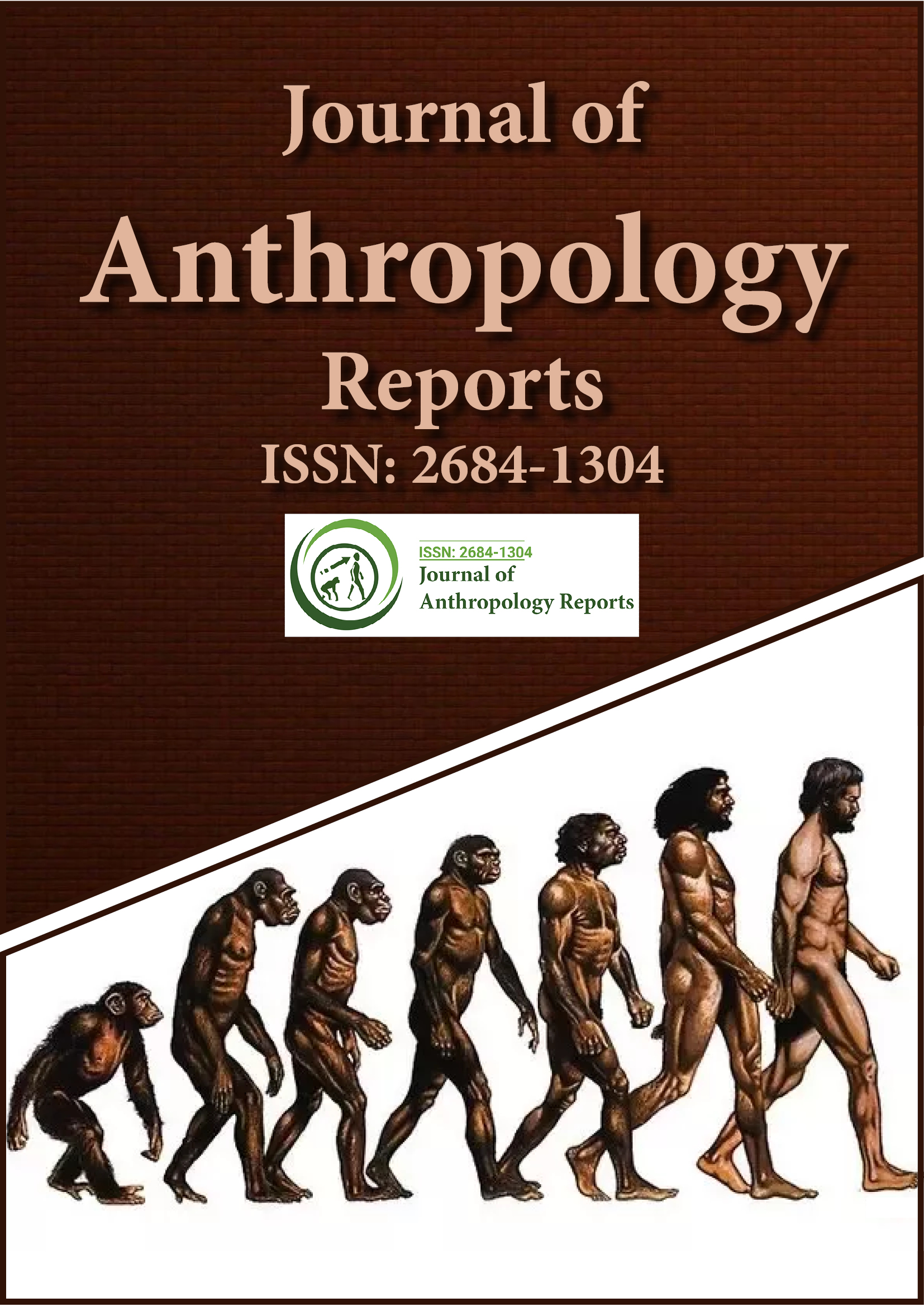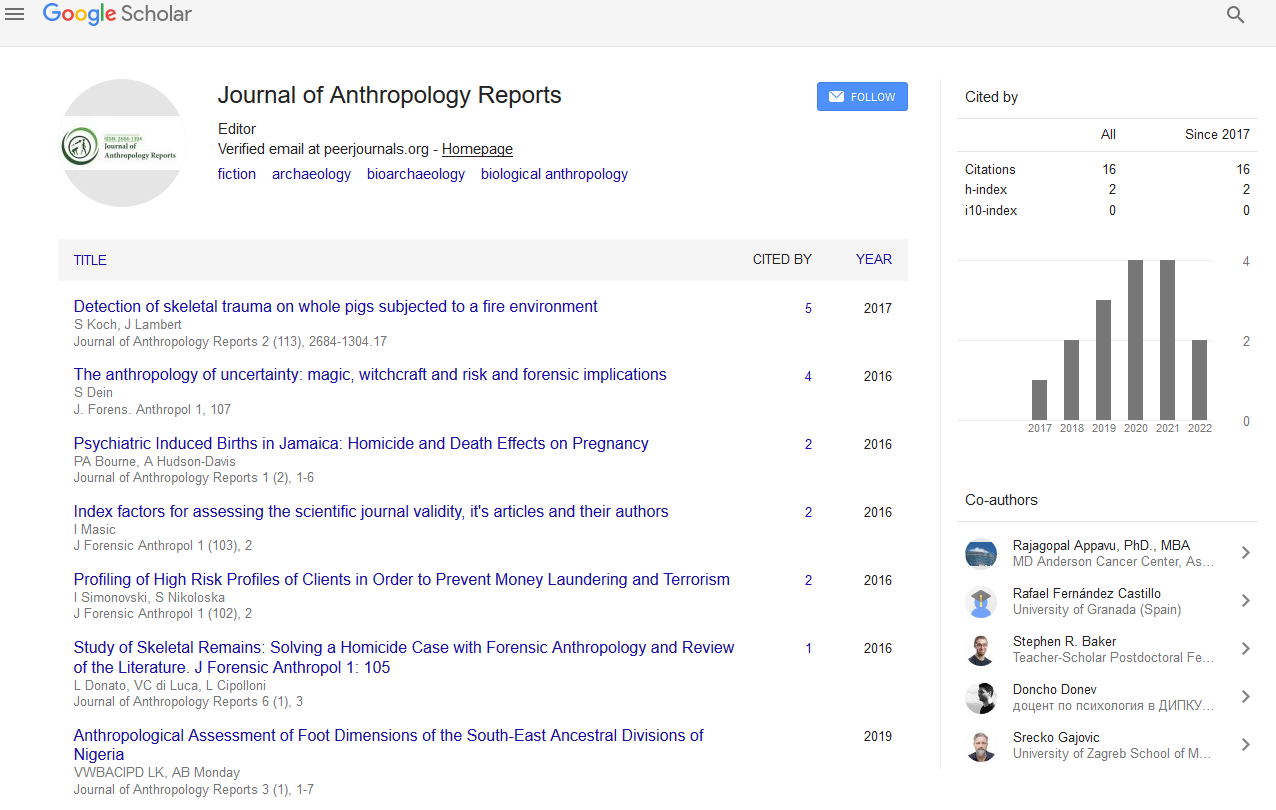Indexed In
- RefSeek
- Hamdard University
- EBSCO A-Z
Useful Links
Share This Page
Journal Flyer

Open Access Journals
- Agri and Aquaculture
- Biochemistry
- Bioinformatics & Systems Biology
- Business & Management
- Chemistry
- Clinical Sciences
- Engineering
- Food & Nutrition
- General Science
- Genetics & Molecular Biology
- Immunology & Microbiology
- Medical Sciences
- Neuroscience & Psychology
- Nursing & Health Care
- Pharmaceutical Sciences
Opinion Article - (2024) Volume 7, Issue 2
Predicting Human Behavior from Genetic Information
Sakugra Fujimo*Received: 28-May-2024, Manuscript No. JFA-24-26531; Editor assigned: 31-May-2024, Pre QC No. JFA-24-26531 (PQ); Reviewed: 14-Jun-2024, QC No. JFA-24-26531 (QC); Revised: 21-Jun-2024, Manuscript No. JFA-24-26531 (R); Published: 28-Jun-2024, DOI: 10.35248/2684-1304.24.7.197
Description
There are various manners by which specialists can concentrate on the commitment that hereditary variables make to human way of behaving. To start with, there are observational examinations, which include evaluating and looking at family members like twins or kin, families and embraced youngsters. This kind of examination is called quantitative hereditary qualities since it expects to look at the degree to which variety in a characteristic is impacted by hereditary elements in a populace.
It utilizes factual strategies to look at and analyze gatherings, without zeroing in on specific qualities. Any depiction of a human activity can be set at a level that incorporates data about the organic qualities of the person. Hence, one might say that the development of the man's muscles made him conduct, or that the development of his leg made him the way of behaving. In the event that one expands a portrayal sufficiently far, it will positively incorporate data about the physiological qualities of the person, since these will be engaged with any human activity. The significant inquiry is: what direction of depicting or it is the most helpful to figure out the demonstration? In the event that hereditary variables would one say one are part of causal clarifications of human way of behaving, what significance ought to be concurred to them? The response is probably going to rely upon what utilize the examiner needs to think about the data. We return to this significant issue in the last segment of this Report, with regards to moral and lawful obligation Regardless of whether it isn't known unequivocally the way in which a hereditary variation adds to a conduct characteristic, it very well may be feasible to foresee how likely it is that people with that hereditary variation will show the quality being referred to. Here, it is critical to separate between foreseeing the future improvement of a phenotypic quality or explicit way of behaving, and estimating a phenotypic characteristic that is now settled in an individual and can be noticed. For instance, in the event that there was a hereditary variation, or gathering of hereditary variations, known to be related with lower or higher knowledge, it would be feasible to gauge the genotype of a child and to make some expectation of the intelligence level that the child will have as a grown-up.
On the other hand, estimating that genotype in a grown-up could empower the ongoing level of intelligence of the grown-up to be assessed. A third situation for the prescient utilization of hereditary data is anticipate the probability representing things to come event of a particular demonstration connected to a social quality, for instance a demonstration of hostility. Nonetheless, in anything setting the term expectation is being utilized, it is profoundly improbable that individual hereditary variations will frequently be exact indicators of social qualities. It isn't known the number of qualities that will represent the hereditary impact on a characteristic that is ordinarily disseminated, regardless of whether that hereditary impact has all the earmarks of being significant. Conduct characteristics are intricate, and are probably going to be the aftereffect of the statement of various qualities, which interface with one another and with the climate. No single quality is probably going to represent in excess of a little extent of the complete difference of a given characteristic.
Moreover, regardless of whether it was feasible to distinguish every one of the qualities that add to the heritable part of the characteristic, the prescient power would in any case be exceptionally restricted. Considering existing proof from investigations of Monozygotic (MZ) twins, apparently such hereditary expectations of conduct characteristics could possibly represent all things considered half of the difference. This would in any case leave to some degree around 50% of the change in characteristic scores eccentric. Whether this natural part of the change will become unsurprising relies on future advances in understanding which factors lead to ecological difference. This is an at this point essentially neglected area.
Citation: Fujimo S (2024) Predicting Human Behavior from Genetic Information. J Anthropol Rep. 7:197.
Copyright: © 2024 Fujimo S. This is an open-access article distributed under the terms of the Creative Commons Attribution License, which permits unrestricted use, distribution, and reproduction in any medium, provided the original author and source are credited.

